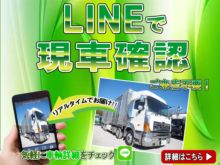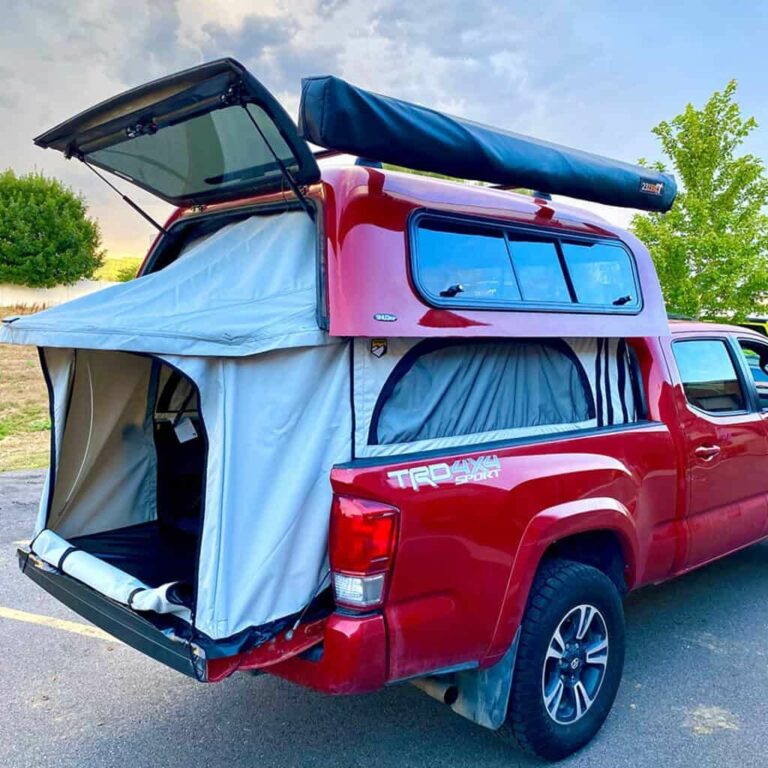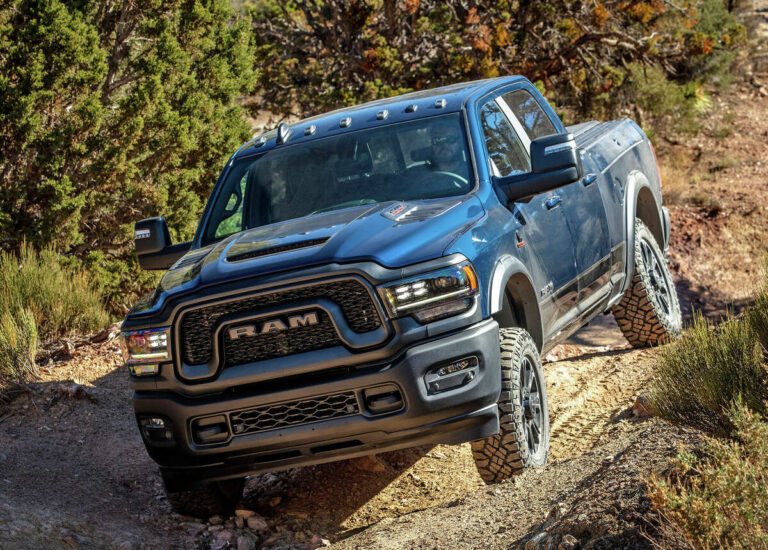Used Yard Spotter Trucks For Sale: Your Comprehensive Guide to Smart Procurement
Used Yard Spotter Trucks For Sale: Your Comprehensive Guide to Smart Procurement cars.truckstrend.com
In the bustling world of logistics, distribution, and manufacturing, efficiency is paramount. Every minute counts, especially when moving goods within a confined space. This is where the unsung hero of the yard, the yard spotter truck, comes into its own. Also known as terminal tractors, shunt trucks, yard goats, or hostlers, these specialized vehicles are designed for one primary purpose: efficiently moving semi-trailers around docks, warehouses, rail yards, and ports. While new models offer cutting-edge features, the market for used yard spotter trucks for sale presents a compelling proposition for businesses looking to optimize their operations without breaking the bank. This guide will delve into everything you need to know about acquiring a pre-owned yard spotter, offering practical advice and actionable insights.
Understanding the Workhorse – What is a Yard Spotter Truck?
Used Yard Spotter Trucks For Sale: Your Comprehensive Guide to Smart Procurement
A yard spotter truck is not your typical semi-truck. It’s a purpose-built vehicle engineered for agility, power, and high visibility within a confined operational area. Unlike over-the-road trucks, spotters feature a short wheelbase for tight turning radii, a hydraulically or air-operated fifth wheel for quick trailer coupling/uncoupling without the driver leaving the cab, and often a rear-entry cab design for enhanced safety and visibility. Their robust chassis, powerful engines (typically diesel, though electric options are growing), and heavy-duty transmissions are designed to handle continuous stop-and-go operations and heavy loads day in and day out. They are indispensable for reducing trailer turnaround times, improving safety, and streamlining yard management.
The Economic Advantage – Why Choose a Used Yard Spotter?
Opting for a used yard spotter truck can offer significant benefits, making it a smart strategic decision for many businesses:
- Significant Cost Savings: The most obvious advantage is the lower initial investment. Used spotters can be tens of thousands of dollars cheaper than new ones, freeing up capital for other operational needs.
- Immediate Availability: New yard spotters often come with lead times due to manufacturing schedules. Used models are typically available for immediate purchase and deployment, which is crucial for businesses with urgent needs or sudden fleet expansion plans.
- Reduced Depreciation: Like all heavy equipment, yard spotters experience significant depreciation in their first few years. Buying used means much of this initial depreciation has already occurred, allowing your investment to retain more of its value over time.
- Proven Performance: A used truck has a track record. With proper maintenance records, you can assess its past performance and reliability, giving you a clearer picture of its long-term potential.
- Sustainability: Choosing used equipment is an environmentally conscious decision, extending the lifecycle of existing machinery and reducing the demand for new manufacturing.
- Lower Insurance Costs: Generally, older, less expensive equipment incurs lower insurance premiums, contributing to overall operational savings.
- Fleet Expansion & Trial Periods: For companies expanding their fleet or looking to trial a yard spotter’s impact on their operations, a used unit offers a low-risk entry point.

Navigating the Market – Key Considerations for Your Purchase
While the benefits are clear, buying a used yard spotter requires careful consideration to ensure you get a reliable workhorse rather than a money pit.
-
Thorough Condition Assessment:
- Engine & Transmission: These are the heart of the machine. Check for leaks, unusual noises, smoke, and smooth shifting. Ask for recent service records.
- Hydraulic System: Inspect hoses, cylinders, and the fifth wheel lift mechanism for leaks or damage. Ensure the lift operates smoothly and holds pressure.
- Brakes: Test both service and parking brakes. Worn brakes can be a significant safety hazard and expensive to replace.
- Frame & Chassis: Look for cracks, welds, or signs of excessive rust, especially in critical stress areas.
- Tires: Assess tire wear. Replacing a full set of tires can add a substantial cost.
- Electrical System: Test all lights, gauges, wipers, and air conditioning (if equipped).
- Cab Interior: Check for seat condition, dash integrity, and general wear and tear that might indicate hard use.
-
Maintenance Records and History: This is perhaps the most critical piece of information. Comprehensive service records will reveal a truck’s life story, including regular maintenance, repairs, and any recurring issues. A well-maintained truck, even with high hours, can be a better buy than a low-hour unit with a patchy history.
-
Hours of Operation vs. Mileage: Yard spotters accrue hours much faster than miles. High hours (e.g., over 15,000-20,000) often indicate significant wear on components, but a meticulously maintained high-hour unit can still be valuable.
-
Engine Type (Diesel vs. Electric): Most used spotters are diesel. Electric models are newer to the market, so used electric options might be fewer and potentially more expensive, but they offer lower operating costs and emissions. Consider your charging infrastructure if going electric.
-
Road Legal vs. Off-Road: Determine if you need a "DOT-compliant" or "road legal" spotter (with proper lighting, mirrors, and braking systems for public roads) or an "off-road" unit strictly for yard use. Road legal units are generally more expensive.
-
Brand Reputation: Stick to reputable manufacturers known for durability and parts availability, such as Kalmar Ottawa, Capacity, and TICO.
-
Dealer Reputation: Purchase from a reputable dealer specializing in heavy equipment or yard spotters. They often offer reconditioned units, limited warranties, and support services.
-
Professional Inspection: If possible, hire an independent, qualified mechanic to perform a pre-purchase inspection. This small investment can save you from costly surprises down the road.
Where to Find Your Next Spotter
The market for used yard spotter trucks is diverse:
- Specialized Heavy Equipment Dealers: Many dealers focus on commercial trucks and heavy equipment, often having a dedicated inventory of used yard spotters. They may offer reconditioned units and financing.
- Online Marketplaces: Websites like TruckPaper.com, MachineryTrader.com, IronPlanet.com, and RitchieSpecs.com are excellent resources for browsing a wide selection from various sellers.
- Auctions: Both online and live auctions (e.g., Ritchie Bros. Auctioneers, IronPlanet) frequently feature yard spotters. While potential bargains exist, "as-is, where-is" sales carry higher risk.
- Direct from Fleets: Some large companies and logistics providers sell off their older units when upgrading their fleets. These can sometimes be found through industry contacts or company websites.
Smart Buying Strategies – Tips for a Successful Acquisition
- Define Your Needs Clearly: Before you start looking, know exactly what you need. What’s the average weight of trailers? How many shifts will it operate? Do you need road legal capabilities?
- Set a Realistic Budget: Factor in not just the purchase price but also transportation, potential immediate repairs, and ongoing maintenance.
- Thorough Research: Compare prices for similar models, years, and conditions across different sellers. Understand market value.
- Inspect, Inspect, Inspect: Never skip a physical inspection. If you can’t do it yourself, hire a professional.
- Negotiate: Always be prepared to negotiate the price. There’s often room for movement, especially on older units.
- Understand Warranties (or lack thereof): Most used equipment is sold "as-is." If a warranty is offered, understand its terms and limitations fully.
- Factor in Post-Purchase Costs: Budget for transportation from the seller to your facility, initial fluids and filter changes, and any minor repairs identified during inspection.
Overcoming Obstacles – Common Challenges and Solutions
- Hidden Issues:
- Challenge: A truck might look good on the surface but have underlying mechanical or electrical problems.
- Solution: Comprehensive professional inspection, requesting detailed maintenance records, and purchasing from reputable sellers.
- Lack of Maintenance Records:
- Challenge: Some sellers may not have complete service histories.
- Solution: Proceed with extreme caution. If records are absent, the inspection must be even more rigorous, and you should factor in a higher contingency for immediate repairs.
- Finding the Right Fit:
- Challenge: Matching a used truck to your specific operational needs can be difficult with limited inventory.
- Solution: Be patient and cast a wide net. Clearly define your non-negotiable requirements versus desirable features.
- Transportation Logistics:
- Challenge: Moving a yard spotter can be complex and expensive.
- Solution: Factor transport costs into your budget from the outset. Many dealers can arrange shipping, or you may need to hire a specialized heavy haul carrier.
Estimated Price Guide for Used Yard Spotter Trucks
The price of a used yard spotter truck varies significantly based on factors like make, model, year, hours of operation, overall condition, and specific features (e.g., road legal, automated fifth wheel, air conditioning). The table below provides estimated price ranges to give you a general idea, but these are highly variable and should be used as a guideline only. Always get a specific quote for any unit you’re considering.
| Make/Model (Examples) | Year Range | Condition | Estimated Price Range (USD) | Key Features/Notes |
|---|---|---|---|---|
| Kalmar Ottawa T2/T2i | 2005-2010 | Fair | $15,000 – $30,000 | Older models, higher hours, potential for significant wear. |
| Capacity TJ5000/9000 | 2010-2015 | Good | $30,000 – $55,000 | Mid-life, moderate hours, generally well-maintained. |
| Kalmar Ottawa T2/T2i | 2015-2020 | Excellent | $55,000 – $80,000 | Newer, lower hours, often reconditioned or off-lease. |
| TICO Pro-Spotter | 2015-2020 | Excellent | $50,000 – $75,000 | Newer, competitive alternative, good parts availability. |
| Electric Spotters | 2018-Present | Good/Newer | $80,000 – $120,000+ | Limited used market, higher initial cost but lower op-ex. |
| Note: Prices are highly variable and depend on specific features, location, and seller. Pre-emission (pre-2007) models might be cheaper but come with different maintenance considerations. Reconditioned units from reputable dealers will typically be at the higher end of the range but offer better reliability. |
Frequently Asked Questions (FAQ)
Q1: What’s the main difference between a yard spotter and a semi-truck?
A1: A yard spotter is designed for low-speed, high-maneuverability operations within a yard, featuring a shorter wheelbase, rear-entry cab, and an automated fifth wheel for quick coupling. A semi-truck is built for high-speed, long-haul road transport.
Q2: How many hours is too many for a used spotter?
A2: There’s no single "too many" number. While a spotter with 20,000+ hours might seem high, a unit with meticulous maintenance records and recent major component overhauls can be a better investment than a lower-hour unit that was neglected. Focus on maintenance history and overall condition more than just hours.
Q3: Are electric yard spotters a good used option?
A3: Used electric spotters are less common and often command higher prices due to their newer technology and lower operating costs. If your operation supports the charging infrastructure, they can be an excellent, environmentally friendly, and cost-efficient long-term option, but thorough battery health checks are crucial for used electric units.
Q4: What are the most reputable brands for yard spotters?
A4: Kalmar Ottawa, Capacity, and TICO are the industry leaders, known for their durability, performance, and widespread parts and service networks.
Q5: Do I need a CDL to operate a yard spotter?
A5: Generally, no. Most yard spotters operate on private property and do not require a Commercial Driver’s License (CDL). However, if the spotter is road-legal and will be driven on public roads (even briefly), a CDL and appropriate endorsements may be required depending on local regulations and the vehicle’s weight rating.
Q6: What kind of maintenance do they require?
A6: Yard spotters require regular preventive maintenance, similar to other heavy-duty vehicles, including oil changes, fluid checks, filter replacements, brake inspections, and lubrication. Due to their continuous stop-and-go nature, components like brakes, transmissions, and hydraulic systems often experience higher wear.
Q7: Can I rent one before buying?
A7: Yes, many heavy equipment rental companies offer yard spotters for rent. This is an excellent way to test a specific model or determine your exact needs before making a purchase.
Conclusion
The market for used yard spotter trucks for sale offers a compelling pathway to enhancing your operational efficiency and reducing costs. By understanding what these specialized vehicles are, recognizing the distinct advantages of buying pre-owned, and diligently evaluating potential purchases, you can make an informed decision that benefits your bottom line. While challenges exist, thorough research, professional inspection, and smart negotiation can transform the acquisition of a used yard spotter from a daunting task into a strategic asset. Invest wisely, and your used yard spotter will prove to be a tireless and valuable workhorse for years to come.








